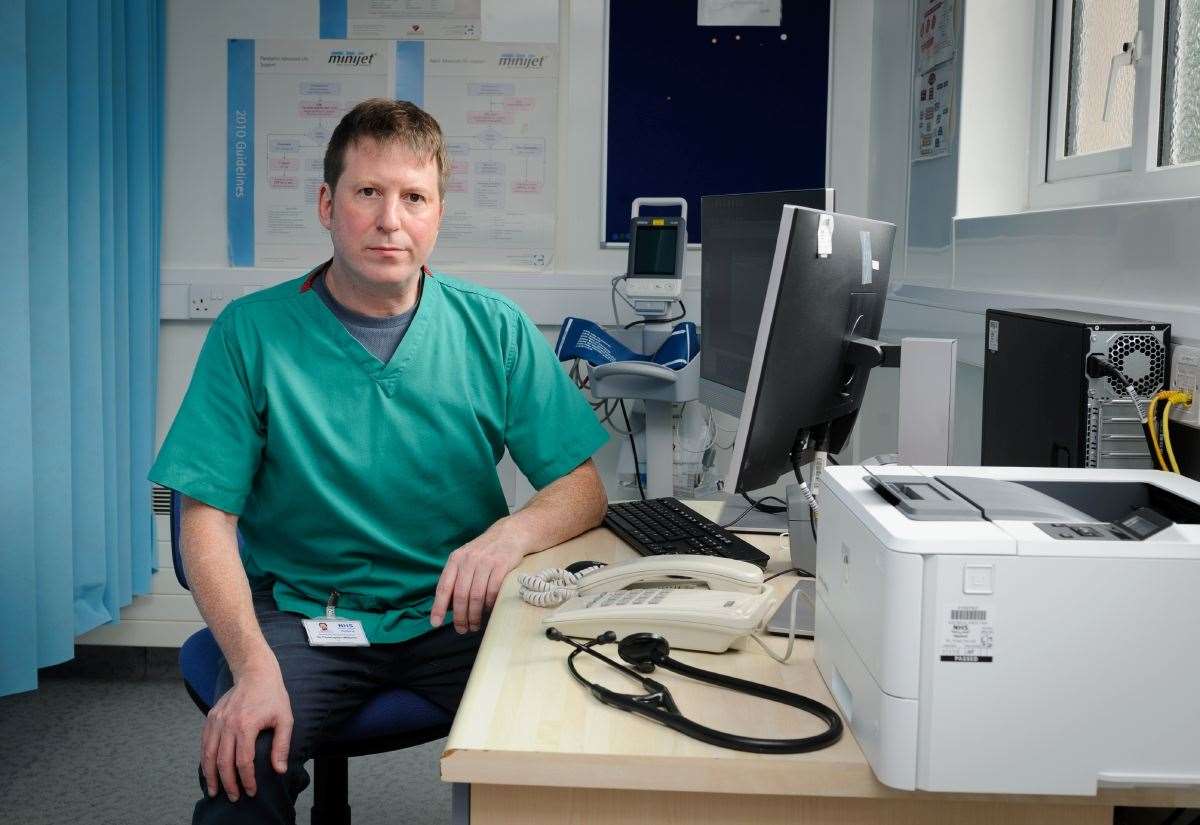Highland GP Dr Chris Williams, he is also vice chairman of the Royal College of General Practitioners (RCGP) Scotland.
A PLAN to create a national network of walk-in GP services is facing questions from one of the Highlands’ leading GPs.
First Minister John Swinney set out a plan to end the 8am rush for a doctor’s appointments and provide greater access to healthcare at the SNP conference last weekend.
Mr Swinney’s vision is for walk-in services on high streets, close to schools and workplaces, to be open from noon to 8pm seven days a week.
Under the plan patients won’t need to make an appointment, meaning more people can go after work “when it fits with their lives”.
He said the scheme would begin with 15 sites across Scotland and deliver one million additional GP and nurse appointments, to be up and running within a year.
Centres would operate in addition to existing primary care services, providing same-day assessments, diagnostics and treatment.
Bur Dr Chris Williams, who is vice chairman of the Royal College of General Practitioners (RCGP) Scotland, fears that care could be “fragmented” under the plan which he also stated would “not necessarily reduce pressure on core GP services.”
A Grantown-on-Spey based GP and one of the original whistleblowers who shone a light on bullying in NHS Highland before the pandemic, he has reservations about how it would work in the Highlands in particular.
“The locations for these community-based clinics have not yet been determined but it’s possible that a remote or rural area could be selected as one of the pilot sites,” he said.
“While the concept of walk-in services may appear convenient to some people, evidence from elsewhere suggests that care through this approach can be fragmented and does not necessarily reduce pressure on core GP services or lower the number of patients attending accident and emergency departments.
“NHS Highland already operates Investigation and Treatment Room (ITR) services, delivered by community nursing teams, which allows patients to undergo tests requested by secondary care specialists closer to home.
“As this walk-in primary care pilot develops, it is essential to ensure that people living in remote, rural, and island communities are not disadvantaged. These areas already face significant challenges in recruiting healthcare staff and delivering services, which must be addressed.
“Ultimately, patients should not be expected to travel long distances to access the care they need.”
Health secretary Neil Gray said: “Improving access to primary care and shifting more care into the community is central for this government
“As part of this, we are taking forward new and innovative ways to improve access to primary care, including the benefits of local walk-in GP clinics.
“These will be in addition to core GP services and will offer additional flexibility for patients. These will be designed in collaboration with NHS boards, GPs and other partners to ensure they strengthen existing services.”
Do you want to respond to this article? If so, click here to submit your thoughts and they may be published in print.

